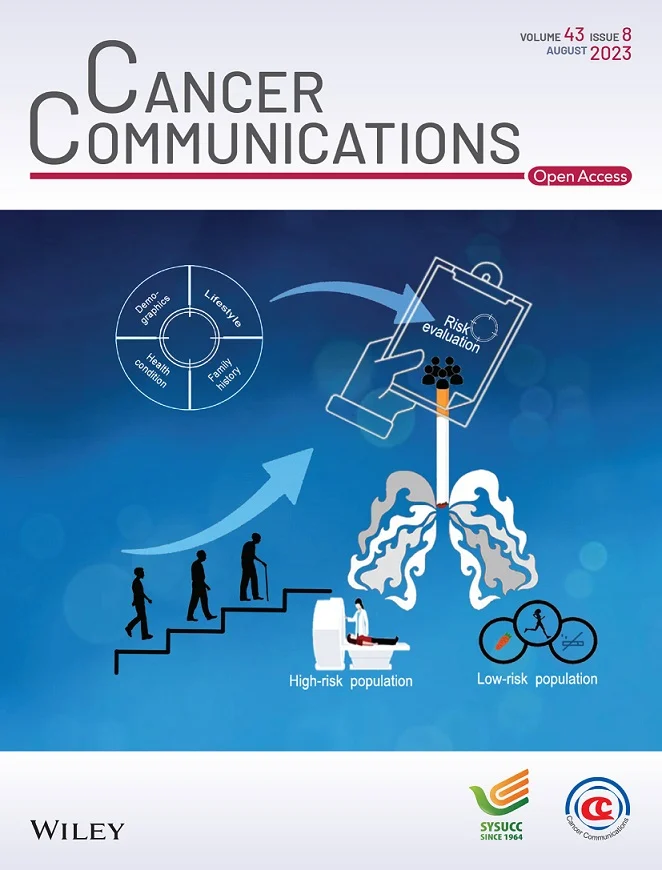Stereotactic body radiotherapy plus cadonilimab (PD-1/CTLA-4 bispecific antibody) as third-line or beyond therapy for refractory solid tumors: A phase 1b study
Abstract
Background
Cadonilimab is a humanized immunoglobulin G1 bispecific antibody targeting programmed cell death protein 1 (PD-1) and cytotoxic T-lymphocyte-associated antigen 4 (CTLA-4). This study aimed to evaluate the safety and efficacy of stereotactic body radiotherapy (SBRT) combined with cadonilimab in patients with advanced recurrent or refractory solid tumors.
Methods
Patients with advanced solid tumors who progressed after at least two lines of systemic treatment, including immunotherapy, and were eligible for SBRT were enrolled. SBRT was administered to patients with high-burden/symptomatic lesions in combination with intravenous cadonilimab (6 mg/kg, once every 2 weeks). The primary endpoint was safety.
Results
Sixty-three patients were enrolled from August 28, 2022, to September 14, 2023 (median follow-up: 9.1 months). The median prior treatment line was 3.0 (range 2.0-4.0). Approximately 46.0% (29/63) of patients had received prior PD-1/PD-L1 therapy, 36.5% (23/63) and 12.7% (8/63) of patients had non-small cell lung cancer and soft tissue sarcoma. Treatment-related adverse events (TRAEs) occurred in 38.1% (24/63) of patients, with grade 3 TRAEs reported in 3.2% (2/63). The most common TRAEs included pain (12.7%), elevated transaminases (12.7%), pneumonia (6.4%), fatigue (6.4%), nausea (4.8%), and fever (4.8%). The objective response rate (ORR) was 23.8% (95% confidence interval [CI], 14.0%-36.2%). The median progression-free survival (PFS) was 7.2 months (95% CI, 6.3-8.2 months), and the median overall survival (OS) was 10.0 months (95% CI, 7.7-12.4 months). The 6-month and 12-month local control rates were 98.4% and 93.0%, respectively. In a subgroup analysis of 23 non-small cell lung cancer patients, the ORR was 17.4% (95% CI, 5.0%-38.8%), the median PFS was 6.9 months (95% CI, 4.7-9.1 months), and the median OS was 9.1 months (95% CI, 7.3-10.9 months). Multivariate analysis indicated that receiving ≥6 cycles of cadonilimab and having an Eastern Cooperative Oncology Group performance status score of 0-1 were significantly associated with improved PFS and OS (P < 0.05).
Conclusions
SBRT in combination with cadonilimab demonstrated manageable toxicity and promising efficacy in heavily pretreated patients with refractory solid tumors.
Trial registration
This study was retrospectively registered at ClinicalTrials.gov (NCT05915481) on August 20, 2022.


 求助内容:
求助内容: 应助结果提醒方式:
应助结果提醒方式:


